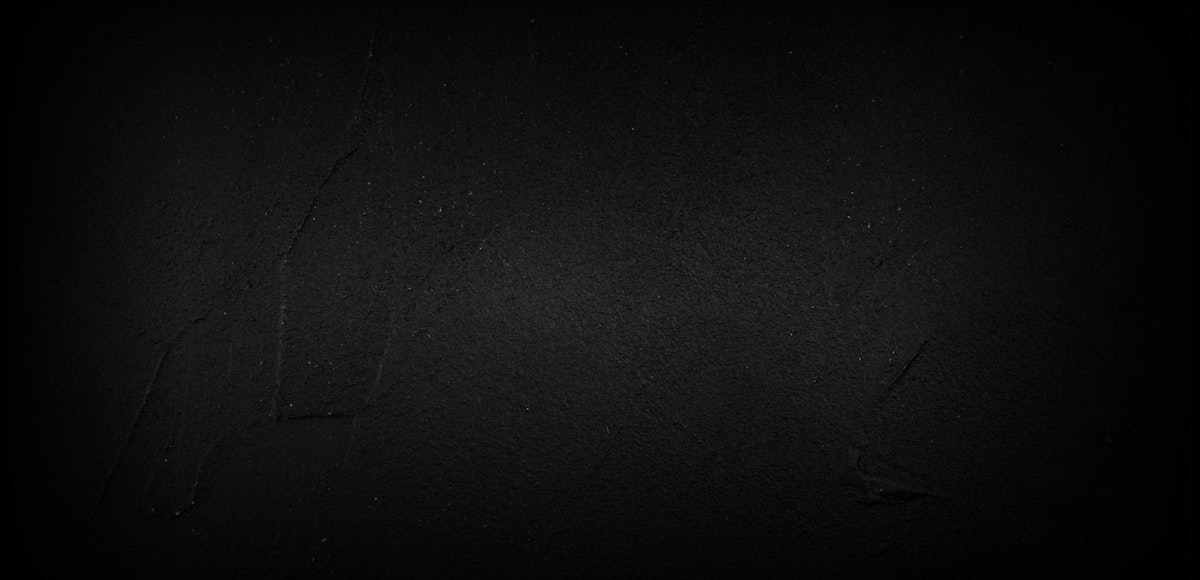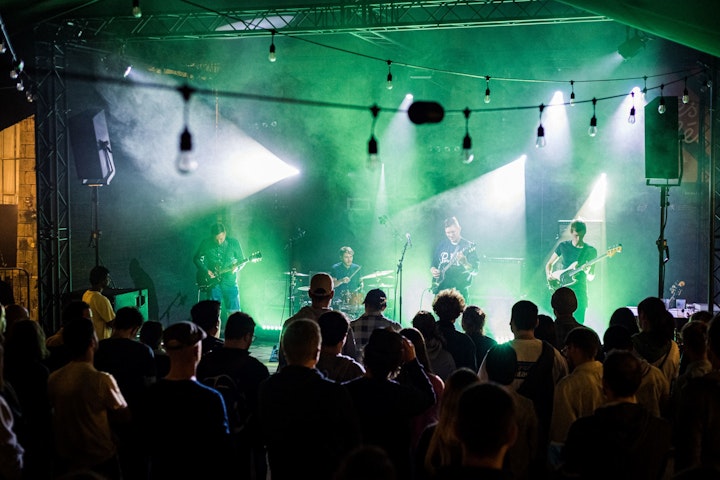
Interview Marc Hauser & Nicolas Przeor
How did you become Rotondes’ successful duo?
M.H.: At the beginning, I was the sole programmer. I started during Luxembourg 2007 − European Capital of Culture, organising my first concerts in the Exit07 hall. It was the first time there was a place that size in Luxembourg, built to accommodate 250 people. It worked out quite well and I continued solo until 2016, the year Nicolas arrived.
N.P.: Before joining the team, I was a regular at Exit07, and I thought everything Marc programmed was really cool. I felt close to his musical direction. When I started at Rotondes, Marc was the programmer, and I oversaw production of the concerts. Little by little, we evolved into a duo doing everything together from start to finish.
M.H. As we went along, we realised our conversations enriched us both. Nicolas is a member of a very respected Luxembourg band (Mutiny on the Bounty, editor’s note), which is very useful. He has a lot of experience, and he has a different vision of music and of the music scene. Through our discussions, we always discover new things that we want to pass on to our audience.
How would you describe the music culture you grew up with?
N.P.: Being born in the 80’s, I was a teenager during the grunge period. My parents didn’t listen to a whole lot of music, so my sister was the one who introduced me to various rock bands at the time. She had tapes with The Smashing Pumpkins, Pavement, and listened to bands like The Cure or The Smiths. I was intrigued. I started playing guitar when I was 13 and was steadily drawn to the indie rock scene. At 20, I started organising punk and underground concerts. At the time, to contact the bands, you had to search for an email address inside the CDs. It was very DIY. I learned the trade by organising gigs in small cafés. It’s a passion.
M.H.: As a teenager, I spent all my free time with people who made music. I went to rehearsals, I hung around bands, I gravitated towards these people. I discovered bands like The God Machine, where you can really get into the music. Later, I was more into everything electronic, anything with the Warp label. It was a bit of a revelation. Then I studied for three years in Brussels, where I spent my time in the media library. It was huge, and you could rent CDs for nothing. That’s how I built my music culture. When I came back to Luxembourg in 2003, I started to organise a festival called [vitrin]sonore. We presented the artists in a bar, behind a large window. Then, in 2007, I joined Rotondes and launched the first concerts.
You never schedule the same band twice. How come?
M.H.: It stems from the idea of always presenting something new at every concert. That’s how you foster an inquisitive audience. It makes programming a bit trickier, but it’s also more interesting. We could take the easy way out and re-programme bands we already know, creating a routine – but we like change. We also like the idea of being the gateway for emerging bands and then giving other venues the opportunity to take them on afterwards.
N.P.: We’re a bit like talent scouts, and that makes programming interesting. People are always surprised and come back because they are curious and want to see what they’ll discover next time. Before I started working with Marc, I didn’t know all the bands he presented, but I was rarely disappointed, so I kept coming back for more. That’s what I love in what we do: being able to draw people in with unknown names, thanks to an atmosphere, a style.
What type of audience do you want to reach?
M.H.: We want to appeal to a curious audience – and we do! We see it in the summer, during our Congés Annulés festival. Even though August is usually a slow period for concerts, we sell more tickets then than during the rest of the year. And we meet a lot of people we’d never see otherwise!
(below: The Cookie Jar Complot at Congés Annulés 2021 © Mike Zenari)
How do you “scout” these new bands?
M.H.: There are several roads that lead to ‘unearthing’ new music. First, it helps a lot to simply listen to a lot of music, to buy records and listen to them. Then there are many ‘showcase festivals’, like the Reeperbahn Festival in Hamburg, The Great Escape in Brighton, the Eurosonic in Groningen. These are festivals open to both the public and professionals. Labels, agents and managers go there to discover bands and do their shopping. And of course, we also get proposals from agents, and there’s word of mouth, specialised press, magazines… Plus, the discussions between the two of us.
N.P.: I’m very “in the moment” and curious. Whenever I read an article about a new band, I feel the urge to go further. When I listen to online playlists, I look for bands I don’t know so I always listen to new stuff. I also go to a lot of concerts outside Rotondes, and I meet a lot of new artists through my own band. I think it’s important to stay on your toes, have an open mind and open ears, and always be on top of new trends.
Sincere choices
Which genres do you prefer?
M.H.: We try to be open to everything, but there are some types of music that we don’t do, simply because we don’t know them well enough, and we could make mistakes in our choices. What we then do is leave the door open to organisations capable of covering these styles for us, that we nevertheless find interesting. Like the De Läbbel collective, which deals with hip hop and can programme bands to play here. Or Lagerkultur, a non-profit organisation which is trying to develop the clubbing scene.
You are two passionate people. Are you afraid of being too subjective in your choices?
M.H.: We ask ourselves that regularly. Whether we like it or not, there’s no denying that we make an aesthetic choice, which is subjective. However, I prefer to think of our choices as being authentic and sincere. We go to our concerts ourselves, and we’d never programme a band we don’t want to see, even if it would attract a lot of people. And if we didn’t do our job as a labour of love, it wouldn’t be worth it.





